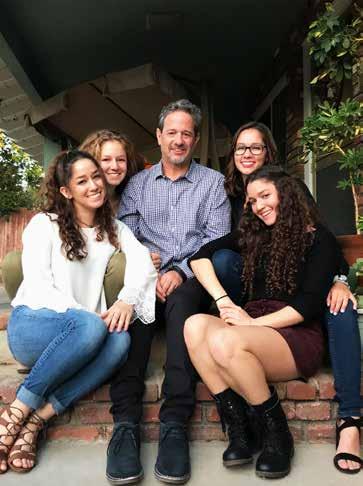
3 minute read
Editor’s Note
DISCOVER OJAI MONTHLY
COLLEGE OF ELDERS
Advertisement
Bret Bradigan
Here’s a thought: With more than 40 million people currently out of work, let’s send them to college. It would solve three or four problems at once.
With the pandemic curtailing the experience for so many, there will be a major shakeout in mid-level colleges and universities that haven’t amassed the huge Harvard-sized endowments that allow them to weather this Coronavirus storm. There’s another demographic storm on the horizon as well: the pool of graduating seniors is shrinking as huge millenial bulge flattens out. Now, while nearly 30 percent of college undergraduates are adults, defined by the Department of Education as 25 years or older. But at the elite level, campuses are populated by fresh-faced freshmen right out of high school. Stanford’s percentage of adult students is only 1.2, and at Yale it’s only .07 and at the University of Chicago, it’s only .2 percent.
Many colleges, especially at the elite level, make much of how they create diverse learning environments, but, according to a New York Times editorial in 2017, “they’re missing out on a tremendous opportunity to bring different perspectives into the classroom.” Why shouldn’t the student body “include students who worked as a nurse in the I.C.U., or supervised a factory floor, or trained combat troops as a noncommissioned officer. And shouldn’t the 18-year-old future leaders of America interact with and learn from people with these experiences?”
This idea hits home for me. In our very rural western New York village, college was rarely discussed. Those who did go to college, such as myself in the post-GI Bill era, only went after we’d served in the military, earning a rather meager matching stipend to our contributions.
It was a far cry from the GI Bill, also known as the Servicemen’s Readjustment Act of 1944, which was designed — with the example of the Bonus Army of World War I veterans in mind — to warehouse the 8 million soldiers who would soon be demobilized into a wartime economy. It would take time to reabsorb them. But it did a lot more than just warehouse these veterans. More than 2.3 million earned degrees and became the generation that put a man on the moon, creating scientific breakthroughs and economic innovations that led the world. The GI Bill is considered by many to be the greatest act of social engineering in history.
By giving so many people a boost, we expanded greatly the opportunities for so many people who were once trapped in a cycle of poverty — the vast underclass in America that Eric Hoffer called “lumpy with talent” — to live up to their enormous potential.
There’s a huge demand in Ojai. Thousands of jobs that existed in the service and hospitality industry — catering to the hundreds of thousands of visitors who vanished into the quarantine era — will be slow to come back as the economy reopens. (Hopefully not too slow). It’s a different way to look at this crisis, as an opportunity to reward the millions left in the lurch, who sacrified their jobs so that others would not die from the pernicious virus.
The GI Bill took millions of farmhands, of factory workers and mechanics and created scientists, engineers and entrepreneurs. Past performance is no guarantee of future results, but it does tell us that America used to do big things. Using this pandemic as an opportunity to give unemployed workers a chance to better themselves would be a big thing.
Stephen Adelman
805.640.5563 | www.ojailuxuryrealestate.com | DRE# 01786486
THERESE HARTMANN
PROVIDING HOME LOANS FOR OVER 25 YEARS!
C2 FINANCIAL CORPORATION IS THE # 1 BROKER IN THE NATION! MORTGAGEEXECUTIVE MAGAZINE April 2019
“Therese Hartmann is highly knowledgeable and experienced. I gained so much confidence working with her during my initial home purchase that I again worked with her in order to refinance. She is also friendly, patient, and understanding which is very helpful as buying a house can be quite stressful. Moreover, she is efficient and really responsive which meant a lot to me! — Lindsey Leonard
(805) 798-2158 | HEARTLOANS@SBCGLOBAL.NET | HEARTLOANS.COM 236 W. OJAI AVE., SUITE 105, OJAI CA 93023







